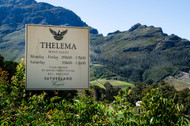In conversation with Thomas Webb from Thelema and Sutherland, South Africa.
Posted by Edward Mercer on 3 Jul 2023
Thelema sits in jaw-droppingly beautiful scenery, but what makes your location so special for wine production?
There is something very special about our site. We have very healthy, deposit-rich granite soils, and southwest-facing slopes that suit the cool climate styles we’re looking to make at Thelema. The climate gives long warm summers with the Benguela currents around the cape, that bring cool breezes and great white sharks, gives freshness and results in low humidity. The cold winters also give great dormancy to the vines.
We sit pretty much where the Patagonia plate and the Africa plate collide, and this pushes up fold mountains, and with Table Mountain sandstone, there is a huge diversity of soils. Our vineyards at Thelema absolutely show this, and we have a huge amount of plant species growing – things just grow really well in this part of South Africa. It is one of those places on the planet where things just thrive. Diversity doesn’t stop there of course, we are the rainbow nation with 11 native languages, and as Wines of South Africa said, ‘diversity is our nature’, just within wine we have incredible array of grapes, styles and characters.
People talk about ‘Terroir’ in the classic sense, the complete natural environment in which a wine is produced - soil, typography and climate. We can tick those three pretty quickly, but a modern take on Terroir also includes the human element, because you still need someone there who is conducting the orchestra. We knew from the start we had something with huge potential in our Stellenbosch (Thelema) site, but for ‘Terroir’ you really need to appreciate the harmony of the person who is making the wines; what do they want to drink, what story do they want to tell in the wines they are making.
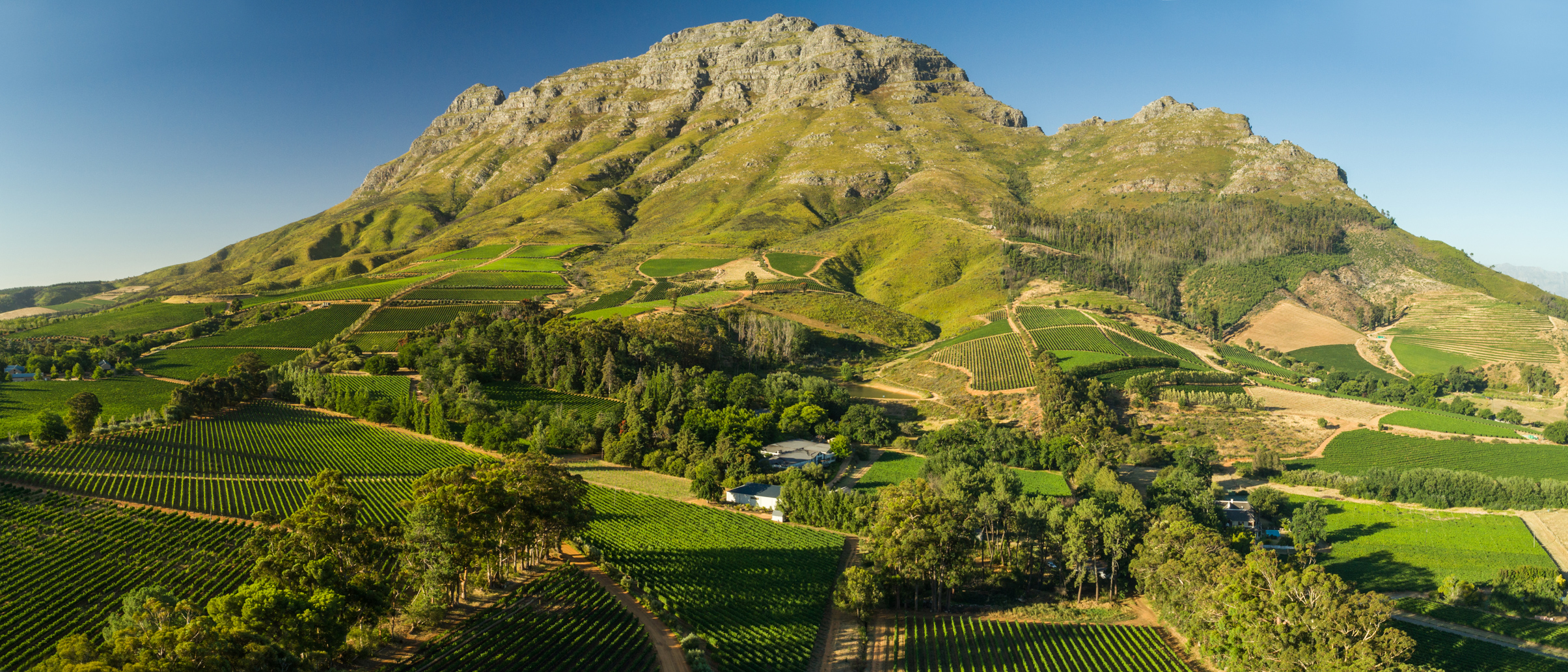
Sunderland wines have a lovely new set of labels, what lies behind the change?
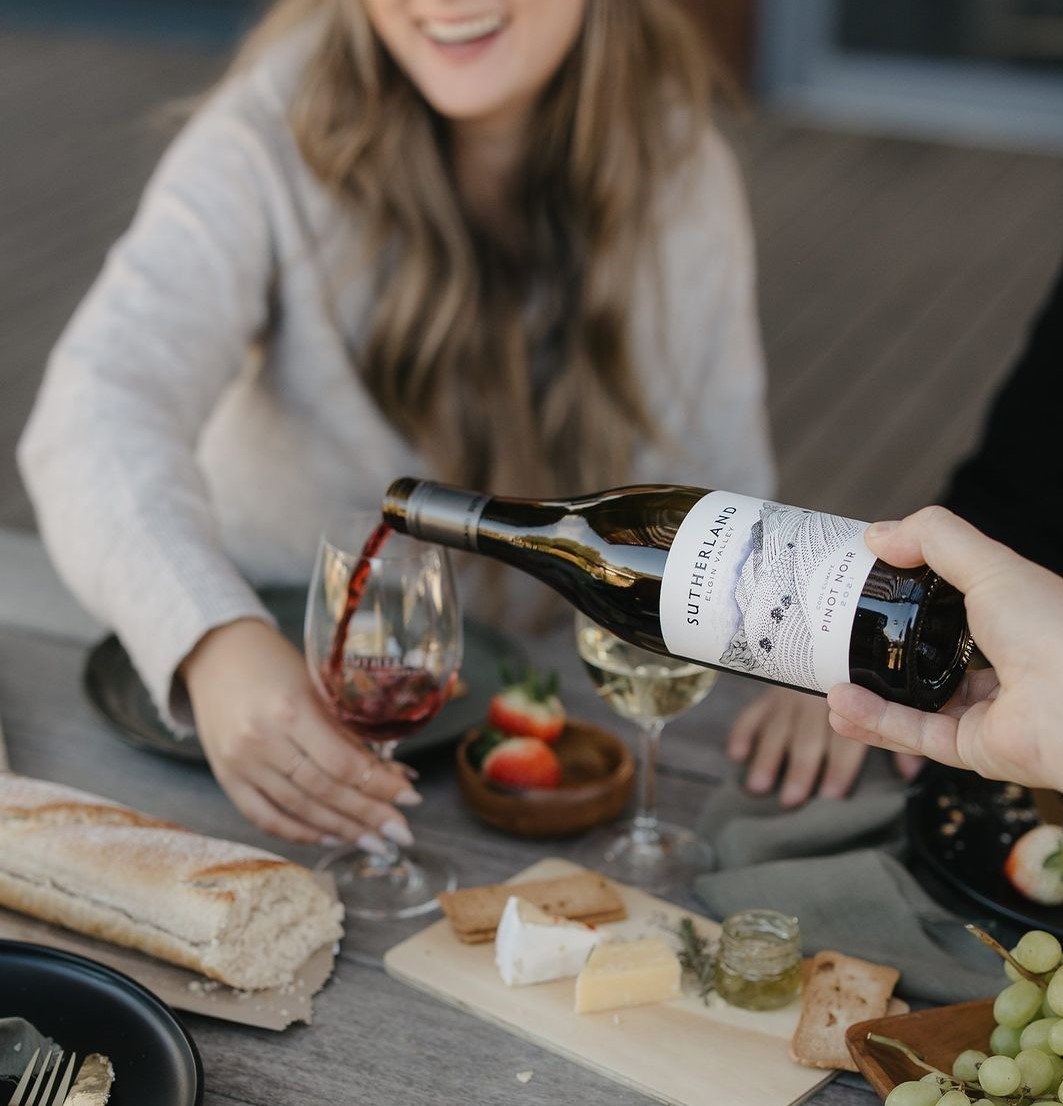
To take you back a bit, Thelema was first planted in 1983, and by early 2000’s we had 50 hectares. The passion was always in the vineyards, and my dad (Gyles Webb) wanted something cool climate, so he found a plot in Elgin which was an old apple orchard and planted out 50 hectares there. People had got used to trusting Thelema’s wines which had been around for 20 years by that stage, so the new Sutherland vineyard in Elgin was always in the shadow of Thelema. Some people even considered Sutherland wines a second label, which was never the case, but at that time people perhaps weren’t as open the change as they are now, they trusted Thelema, and they trusted Stellenbosch.
The Sutherland wines were always good, it’s a great site, but the labels lacked a little bit of personality, so we wanted to firm up the story. Our new presentation will hopefully appeal to a younger, more open-minded, experimental audience. The imagery brings together the geography of the Elgin site, the cool climate rolling hills, a feeling of lightness, a touch of African art, and the colour to distinguish the different grape varieties. It seems to be working as the new Sutherland wine labels are already outselling the old ones right across the globe.
What excites you most about selling your wines right across the world? And favourite memories?
It is amazing to get the opportunity to travel to all these different parts of the world and have access to different cultures. Normal is relative, so what I’m used to is just one element, and its incredible to see that we’re all just little ants scurrying around. You must remember that for a family wine business, we do it because we like farming and we like making wine, we don’t do this to be rich or famous, which is just as well because we haven’t achieved either yet! There is an incredible warmth when you walk into a wine shop in another part of the world and from all the thousands of wines they could choose from, they have your wine, this is hugely fulfilling and affirms that you’re doing a good job.
I’m a very comfortable travelled and I’m usually asleep before the plane takes off, and the gentle clinking of the bottles on the trolley tends to wake me up, so I can order my gin and tonic. I have a young family, so it’s difficult to be away, but I also do love it. The wine trade is about relationships, I don’t want to just put wine on a ship and wave goodbye, it’s an emotional product and I want to meet the people who are drinking Thelema and Sutherland wines. A wine without a story is just 750ml of wine in a bottle, you want to create some personality and connections. That’s why I love travelling.
Certainly, the most unique memories were being invited to the wedding of our Indian importer’s nephew [edited for brevity, but please ask Thomas about this if you see him, it’s a great story]. Another memory was in a little place called St. Johns in Newfoundland where they love our wines, and Sutherland outsells Thelema. It’s an incredible and beautiful little place, they have a strong Irish connection, and the accent still sounds Irish.
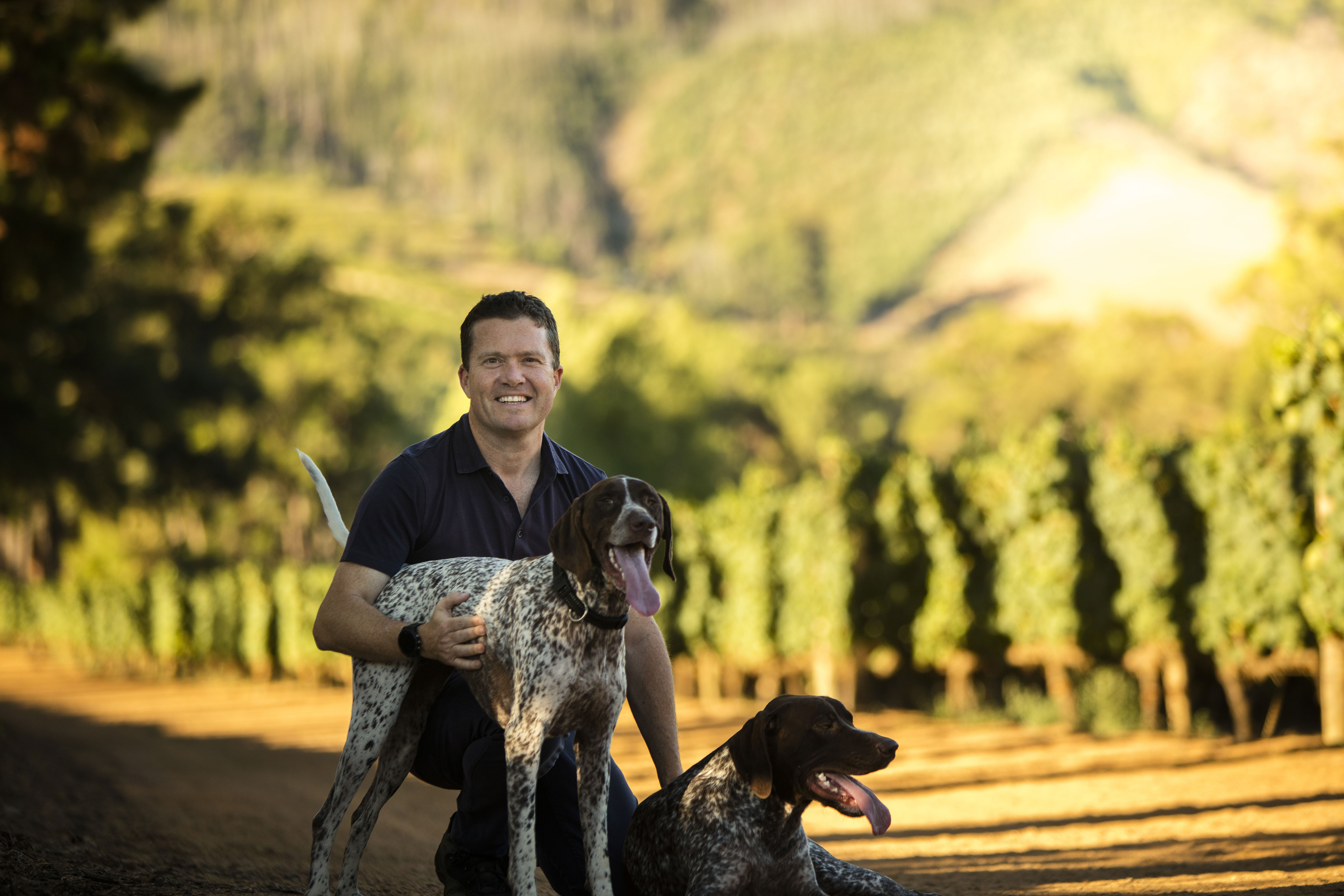
Hear you're a golfer and occasionally Thelema vineyards might be used for range practice...
People like to visit Thelema, and I think about how to give them the most memorable experience. In years to come people may not remember exactly how a wine tastes, but if you they have had a good time, they will have a positive response to Thelema. In most cases people have seen the inside of a cellar or a winery, but it’s like going to a restaurant and visiting the kitchen. What can be more of a memorable experience that standing high above the Simonsberg Mountains smashing some golf balls into the vineyards below. Not only is it something totally fun and unique, but because we are so high up even if you’re not very good the shots look great. This creates a really personal experience, and warmth for the Thelema brand and a huge amount of trust. Even my dad, who is a vineyard man, doesn’t mind me hitting shots towards the vineyards.
What are your big winery projects for the next few years?
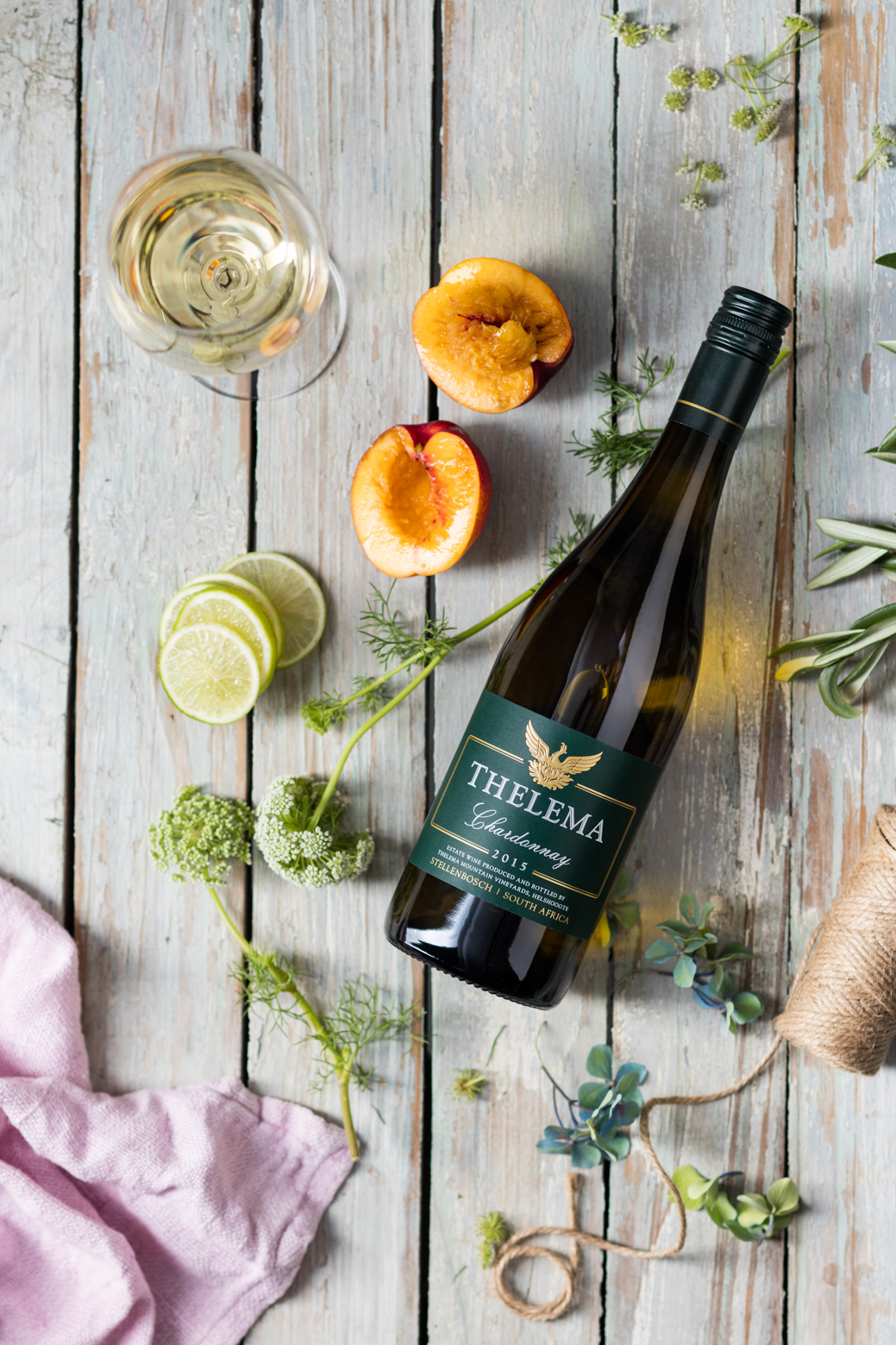 For both Thelema and Sutherland we have all the birds flying in formation at the moment.
Rabelais is doing very well and encouraging a huge amount of enthusiasm for the
brand, the Mountain range is providing a really affordable option, and with the
Sutherland label redesign also. The big change though is behind the scenes and
has been going on for some time, and this is the replanting of the all the
vines at Thelema. At the point in 1983 when vines were planted at Thelema,
Gyles wasn’t given much of an option about the vine material he bought. In
fact, the vines purchased at the time came with a warning that no recourse could
be sort if they were poor quality. Thelema was pretty lucky with the plants bought,
but in the early days we planted a lot of experimental vines, even Riesling
which was a very hard sell. We’ve known for a while that the quality of the
vines we can buy now is frankly better. So, this has been a slow change but
vineyard by vineyard has been replanted with cleaner, healthier plant material.
We may have lost a little bit of rustic charm but have been able to make better
wines, with greater purity of fruit, we’re really happy with the results.
For both Thelema and Sutherland we have all the birds flying in formation at the moment.
Rabelais is doing very well and encouraging a huge amount of enthusiasm for the
brand, the Mountain range is providing a really affordable option, and with the
Sutherland label redesign also. The big change though is behind the scenes and
has been going on for some time, and this is the replanting of the all the
vines at Thelema. At the point in 1983 when vines were planted at Thelema,
Gyles wasn’t given much of an option about the vine material he bought. In
fact, the vines purchased at the time came with a warning that no recourse could
be sort if they were poor quality. Thelema was pretty lucky with the plants bought,
but in the early days we planted a lot of experimental vines, even Riesling
which was a very hard sell. We’ve known for a while that the quality of the
vines we can buy now is frankly better. So, this has been a slow change but
vineyard by vineyard has been replanted with cleaner, healthier plant material.
We may have lost a little bit of rustic charm but have been able to make better
wines, with greater purity of fruit, we’re really happy with the results.
Sutherland by contrast was planted with the best vines to start with, the results are there to see with ripening at low sugar levels and fruit so good they’ve been crying out to be better known. The only remaining old vines now at Thelema are the Muscat block planted in 1986, which produce the Vin de Hel sweet wine.
The other change we’ve made at Thelema is in winemaking, with investment about 5 years ago of four open-top fermenters for manual punching down of the grape cap. This gives a softer, more gentle extraction and we do this for the Shiraz, Pinot Noir and Grenache – the results are fantastic. This sort of change isn’t designed to be a ‘revolution’ like the new guys did in Swartland, this is more of a slow evolution or a ‘Renaissance’ more suited to the culture in Stellenbosch and to Thelema/Sutherland.
The future is very bright for Thelema, Sunderland and SA wines in general, discuss...
South African as a brand could be seen as a little tricky, with a turbulent past and possibly a slightly confusing story around styles and grapes. It is also a small wine producing country with under 100K hectares, Spain in comparison has 1.1m hectares, we are small. It’s very good at a lot of things, but perhaps lacks a little bit of identity as a result, this said it has that lovely old-world style, with new-world accessibility. Chenin from SA has been a big thing, but historically because half the Chenin vines in the world were in SA. It hasn’t been the success for example that New Zealand found with Sauvignon Blanc.
What has helped change this around for South Africa has been the world becoming more open minded to trying new things, and in the UK which is the biggest export market for Thelema and Sutherland, a lot of people know SA and holiday there, this helps a lot. That said there is a long way to go, only 1% of the wines imported into the USA are from SA.
South Africa deserves to do well, and there is a great energy around the industry which is both interesting and dynamic. It is an incredibly diverse, sustainable and ethical industry, and it needs to be because it is under the microscope, so transparency is really important. SA is very good about water management and waste management and it right up there in terms of comparisons with other countries. The future is very bright for South African wines.
For Thelema and Sutherland I’d love to convince Gyles to plant a bit of Chenin, it’s a fantastic grape variety that can hold sugar, or wood, it can be dry, and it has this lovely texture which Sauvignon Blanc in particular doesn’t have. I’m really excited about what Chenin could do.
For more information on Thelema Mountain Vineyards and Sutherland Estate in Elgin please visit www.thelema.co.za

